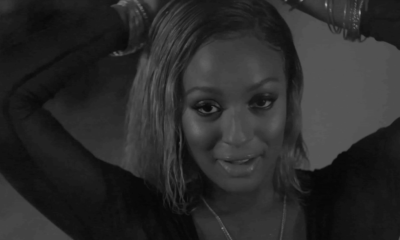News
Charitable Celebrities – Passing the Accountability Test
 Lance Armstrong polarizes opinion. Over the past year, he’s been touted as a drug cheat, a bully and a vengeful character. On the other hand, he fronts one of the more active cancer charities, Live Strong. In 2004, the yellow Nike Live Strong rubber band became one of the most recognizable symbols of my lifetime. It cost about a pound and was seen as a cool fashion accessory. Anyone who was anyone sported it. Politicians like George Bush wore it whilst his opponent John Kerry and his running mate, John Edwards also sported it whilst on the campaign trail. Bono had it on his wrist as he embarked on his charity campaigning. The Olsen Twins, ever the embodiment of cool, went a step further: accessorizing it as a belt. The LiveStrong band was the in thing as it gave the notion that by supporting Armstrong and his cancer work, we were doing the right thing whilst staying fashionable and being in the midst of the cool kids. The wristband craze would go on to be copied by numerous other charities.
Lance Armstrong polarizes opinion. Over the past year, he’s been touted as a drug cheat, a bully and a vengeful character. On the other hand, he fronts one of the more active cancer charities, Live Strong. In 2004, the yellow Nike Live Strong rubber band became one of the most recognizable symbols of my lifetime. It cost about a pound and was seen as a cool fashion accessory. Anyone who was anyone sported it. Politicians like George Bush wore it whilst his opponent John Kerry and his running mate, John Edwards also sported it whilst on the campaign trail. Bono had it on his wrist as he embarked on his charity campaigning. The Olsen Twins, ever the embodiment of cool, went a step further: accessorizing it as a belt. The LiveStrong band was the in thing as it gave the notion that by supporting Armstrong and his cancer work, we were doing the right thing whilst staying fashionable and being in the midst of the cool kids. The wristband craze would go on to be copied by numerous other charities.
Earlier this summer, Armstrong announced that he would not be contesting charges of drug related wrongdoing. By virtue of this, he might lose his numerous laurels amongst which included 7 Tour de France titles. At the time, my naïve self felt sorry for him. I argued that he was being persecuted and was the victim of a witch-hunt. I ignored the logical view that by choosing not to fight the charges, it was an admission of guilt on his part. Rationally, anyone who has earned something legitimately would do all within their power to ensure that there are no attachments to cheating and illegality. On October 10th, when the full report was released by the United States Anti-Doping Agency (USADA) It left no doubt or ambiguity that Armstrong was a specialist drug cheat who had earned all those laurels on a drug addled engine. Excerpts from the report include:
“found proof beyond a reasonable doubt that Lance Armstrong engaged in serial cheating through the use, administration and trafficking of performance-enhancing drugs and methods that Armstrong participated in running in the US Postal Service Team as a doping conspiracy. ”
“Armstrong and his co-conspirators sought to achieve their ambitions through a massive fraud now more fully exposed. So ends one of the most sordid chapters in sports history.”
Lance Armstrong and his handlers engaged in a massive and long-running scheme to use drugs, cover their tracks, intimidate witnesses, tarnish reputations, lie to hearing panels and the press and do whatever was necessary to conceal the truth”
The evidence garnered includes eye witness testimony, laboratory results, scientific data, emails and financial records. The USADA report also portrays Armstrong as a bit of a dictatorial figure who came down hard and heavy on anyone who dared challenge him and his performances. It documents efforts to blackmail and intimidate witnesses and also a vindictive streak encapsulated by his passion to seek revenge.
On the other side of the Atlantic, another legacy has been brought up from the past and is being heavily deconstructed. Jimmy Savile, the deceased disc jockey and presenter of the BBC music chart show, “Top of the Pops” has been the subject of allegations depicting a fancy for young girls and a habit of touching them indecently against their will. The sad thing is Savile passed away last year therefore losing any ability to fight, confirm or deny these allegations. The evidence, thus far is damning. Scotland Yard has attached the description of “predatory sexual offender” to him. A report from people within the BBC suggests that it was a bit of an open secret but that Savile was deemed as an untouchable. It is also believed that he took advantage of his status as a popular charity figure to fulfill his sexual desire whilst feeling up some of these young girls on visits to schools, care homes and hospitals where he was held in high regard for his work as a volunteer porter and charity fund raiser.
This is a man who was knighted as a reward for his charity work in 1990. An article in the “Daily Mail” by his biographer, Dan Davies, says “He boasted how many girls would be available to him on a typical night in one of his dancehalls and claimed to have ‘loved them all’. He also said that it ‘never occurred to me to take a liberty with them’. It struck me then that this was an odd caveat. I asked him about the rumours that had long dogged him, namely that he was into young girls. ‘You’ve got to bear in mind that we live in a funnier world than we did ten years ago,’ he said. ‘That is why in this building I don’t have the internet and I don’t have email, because someone would break in here thinking that I would be up late at night looking at all that porno business, and steal my hard drive. If I ain’t got it in the first place, they can’t get anything on me.”
On one hand, this can be taken as an admission that he did do some inappropriate things. On the other, it seems revisionist that these accusations are being made in his death and not whilst he was alive. As they say “there’s no smoke without fire”
Wyclef Jean is probably Haiti’s greatest export. Wyclef has succeeded to an extent in putting across the impression that he’s a man of his people- Passionate about their standard of living and doing all within his power to appease them and alleviate their problems through his Yéle Haiti foundation. This is further highlighted by his attempt to run for the Presidency in 2010 borne out of a bid to address the shattering effect of the earthquakes that plagued Haiti earlier that year. However, he was disqualified from running on the grounds that he failed to fulfill the requirement of having lived in Haiti for the last 5 years.
Wyclef and Yéle Haiti have been dogged by allegations of wrongdoing. The “New York Times” recently ran an article alleging that an investigation by the New York Attorney General highlights some financial improprieties in the charity’s accounting. It also suggests that the charity has suffered a natural death over the past month leaving behind debts, broken promises and incomplete projects. A search for the charity’s official website corroborates this with a notice saying “This domain name expired on 10/08/2012 and is pending renewal or deletion”.
“The forensic audit examined $3 million of the charity’s 2005 to 2009 expenses and found $256,580 in illegitimate benefits to Mr. Jean and other Yéle board and staff members as well as improper or potentially improper transactions. These included $24,000 for Mr. Jean’s chauffeur services and $30,763 for a private jet that transported Lindsay Lohan from New Jersey to a benefit in Chicago that raised only $66,000.”
The thread that holds the three mentioned figures together is their heavy charity work. These episodes ask a lot of questions. What exactly is the point of charity work? Are the intentions of the charitable relevant or should we be more concerned with the results? Is it to enrich oneself under the guise that the audience with their limitless funds would always find it in them to support the good and right sounding causes? Is it borne out of a need to compensate for the guilt one feels from doing certain things? Have charities become one of those celebrity cliches that we would force ourselves to get used to without questioning? In Armstrong’s case, was his heavy charity work influenced in part (besides being a cancer survivor) by his cheating habits? Was he trying to influence the jury of public opinion? In Savile’s case, his biographer goes on to add “During our time at sea I was alarmed by how often he stopped elderly couples and used the same quip each time to the husband. ‘You want to be careful about being seen with underage girls,’ he’d say, motioning to the man’s wife. ‘You can get in trouble for that.’ It was an extremely odd thing to say and I began to fear he harboured a guilty conscience. I also started to entertain the notion that his tireless charity work might be some grand bid for atonement for past sins.”
In Wyclef’s case, one has to be suspicious of a charity with such irresponsible money management. It beats me that Wyclef would pay himself $100, 000 from his charity to perform at his own fundraiser on the basis that it was his market rate. One would expect that that fee would have been waived or at least cut short to allow the charity focus on its main motives.
I would conclude that it accentuates why there’s a large reluctance in society to contribute towards charities. People distrust charities believing that there’s a negative correlation between the money they earn and the work they actually do. Whilst there are so many credible charities, the doubts over the rest affect them generally. How does one specify between the credible and not so credible? The easy solution would be “Give none at all”. This leads to a vicious cycle where the roles they carry out are erased gradually, leaving some of the more vulnerable members of society who were dependent on them on their own. How do we determine who’s real and who’s not.
How charitable are these charities in the end of the day. Does ‘character’ or ‘personality flaws’ have any impact on the backing of these charities? It makes you wonder about Nigeria and how the need for record keeping and accountability. We need a system that works.
Photo credit: livestrongstories.blogspot.com
____________________________________________________________________________________________
OluwaMayowa Idowu is a blogger, writer and Web Journalist. His work can be found on http://mayowaidowu.com . You can also follow him on Twitter @MayowaIdowu | http://shutterfeeds.com























